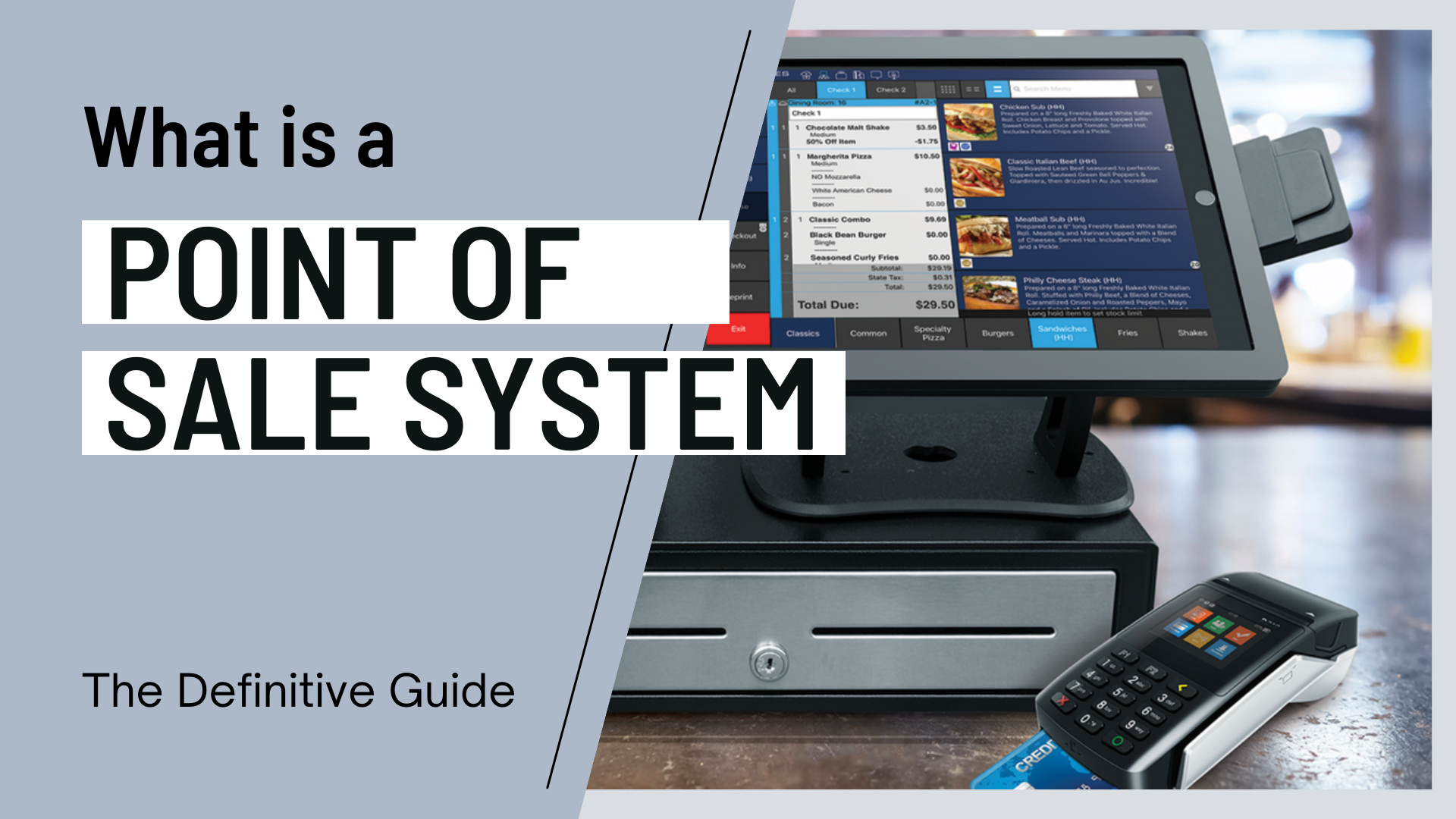
Most of you are familiar with point of sale (POS) systems, even if you don’t realize it.
A POS system is a suite of technology used by retailers and restaurant owners to accept payments from customers, among other tasks. Collectively, it’s the software and hardware that a retail business needs to run their business. From ordering and managing inventory to processing transactions to managing customers and staff, the point of sale is the central hub that helps retailers run and grow their businesses.
POS systems have enabled anyone, from business-savvy entrepreneurs to artisans who want to turn their passion into their profession, to open a retail store and grow. So let’s get into answering your burning POS questions.
What is a POS?
POS is an abbreviation for point of sale, which refers to any place where a transaction can happen, whether it’s for a product or service.
For retailers, that’s usually the area surrounding their cash register. If you’re at a classic diner, where you pay a cashier instead of giving your money to a waitress, that area by the cash register is also considered the point of sale.
If you have a mobile POS, your entire store effectively becomes a point of sale (but we’ll get to that a little later).
What is a POS system?
The first concept to understand about a POS system is that it consists of point of sale hardware and point of sale software. Together, these two components give merchants all of the tools they need to accept popular payment methods, as well as manage and understand their overall businesses. You use your POS to analyze and order your inventory, employees, customers and sales.
Traditionally, legacy POS systems were on premise, which means they used an on-site server and could only run in a specific area of your store. That’s why your desktop computer, cash register, receipt printer, barcode scanner and payment processor were all set up at your front desk and couldn’t be easily moved.
In the early 2000s, a big technological breakthrough happened: the cloud. With the advent of cloud-based storage and computing came the next step in POS technologies evolution: mobility.
What is a mobile POS system?
A result of cloud-based servers was that retailers could start accessing their POS system by picking up any device with internet connectivity—whether a laptop, desktop, tablet or smartphone—and logging into their business portal.
A mobile POS system lets retailers manage their entire business from any device, any time.
The democratization of great customer experiences
The impact on retailers was enormous. Being able to run their business, serve customers and process transactions from anywhere resulted in reduced lineups to pay and faster customer service. The customer experience that was once unique to big retailers like Apple was now available for everyone.
Did you know that 80% of retailers that started using a mobile POS grew their sales?
Mobile POS systems also opened up a ton of new sales opportunities, like opening a pop-up shop or selling at trade shows and festivals.
What are the benefits of a mobile POS system?
- Mobile checkout and payments
- Centralized inventory management
- Real-time access to sales reports
- Advanced customer data
- Schedule and manage employees
- Integrated payment processing
- Manage your business anytime, on any device, anywhere
- Open up new stores, fast
- Customer relationship management capabilities
Which POS is right for your business?
The POS you choose has a big impact on how you run your business day-to-day, and how you grow your business year after year.
There are a lot of options out there. We’ll help you find the right POS for your business.
Source: lightspeedhq.com
What is a Point of Sale System? The Definitive Guide